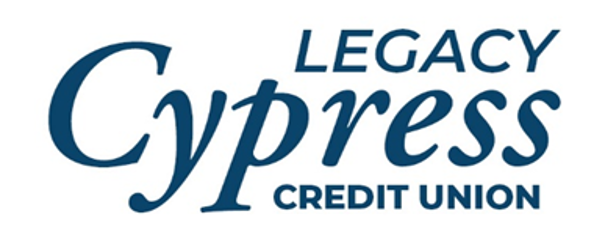20 Great Suggestions For Choosing Business Investment Administration Advice
20 Great Suggestions For Choosing Business Investment Administration Advice
Blog Article
Ten Tips On Trust Administration For Estate Planning, Businesses, Etc.
Here are ten detailed suggestions on trust administration that can be used by estate planning companies or businesses, especially useful when evaluating the ability of a firm to manage, administrate or serve as trustee for the trust. Each tip includes descriptions and pros and cons that will assist you in making an informed decision.
1. Verify Licensing & Regulatory Compliance
Tip. Verify the trust firm is authorized by your state's bank or financial authority and is also regulated.
Pros: Provides legal responsibility and protection for consumers.
Cons: Licenses do not guarantee the highest quality service or adhere to ethical standards.
2. Assessment of Trust Administration Experience
Tip - Choose an attorney firm that has experience in revocable, non-revocable charitable, special needs, and irrevocable estate trusts.
Benefits: People with more experience are more adept at tackling complex situations.
Cons: Larger, older companies might not be as flexible, or personal.
3. Check Fiduciary Duty
TIP: Make sure that the company is acting in a fiduciary role that is, they are legally required to act in your best interest.
Reduces the likelihood of mismanagement or conflict.
Cons: Certain banks or financial advisors are not able to act as fiduciaries.
4. It is also possible to learn about their charges
Tips - Request an unaddressed breakdown of all charges. This includes asset management costs along with transaction fees, and administration fees.
Transparency can be beneficial for cost comparison and for planning.
Cons: Fees can be complex or differ depending on the trust's size and type.
5. Evaluate Investment Management Services
TIP: Evaluate the management team, investment strategy, and performance record of the company managing your assets in case you are unsure.
Pros: It ensures that trusts are in line with their goals and the beneficiaries.
Cons: Some firms push proprietary products or have poor performance.
6. Request Sample Reports
Ask for examples to see what type of reports and statements you or your beneficiaries will be receiving.
Pros: Shows professionalism and openness.
Pros: Some reports could be overly complex or infrequent.
7. Make clear discretionary distribution guidelines
Tip: Know how the company manages discretionary distributions to beneficiaries.
Pros: Keeps track of the finances and makes sure they're not misused.
Cons: Could cause tension If the trustee is strict or unflexible.
8. Review Successor Trustee Planning
Tip: Make sure the company has a strategy in place in the event of losing the trust officer.
Cons: Lessens interruptions and ensures continuity.
Cons: Smaller firms might not have succession planning or backup plans.
9. Ask About Tax Filing Services
Some companies offer trust tax preparation, but others do NOT.
Pros: Reduces mistakes and simplifies compliance.
Cons: May require additional charges or require coordination from an outside.
10. How to Assess Communication Styles and Frequency
Ask your trust officer what frequency he/she contacts beneficiaries and customers.
Pros: Promotes openness and responsiveness.
Cons The excessive amount of contact may be intrusive. View the most popular trust administration fees for blog recommendations including traditional online banking, coastal bank, banking services, florida banking, bank trust online, first united bank login, top banks in us, best us online banks, united united bank, bank online and more.
10 Tips For Commercial Banking Accounts Located In Palm Beach, Florida
Here are ten detailed suggestions for business banking in Palm Beach, Florida. These tips have been specifically tailored to the specific needs of the economy and the financial environment of the region. Each tip is accompanied by a concise explanation, along with pros and pros to assist you in making informed banking decision.
1. Look Into Bundled Services
Certain banks offer bundles of services such as payroll, checking processing credit cards and insurance for businesses.
Pros: Simpler services, discounts.
Cons: Being locked into a single service provider can restrict your choices and reduce savings.
2. Think about Business Credit Cards
Select a credit card that gives cash rewards or travel points and integrates with your accounting software.
Pros: Helps keep track of expenses and help build credit for business.
Cons: Interest charges on balances that are not paid in full monthly.
3. Develop a relationship with an experienced business banker
You can seek help from a relationship banker with recommendations, loans, and financial planning.
Pros The benefits include a more personalized service and faster resolution of issues.
Cons: Not all accounts or national banks offer this service.
4. Examine Wire Transfer and ACH Capabilities
Compare the international and domestic wire fees, and find out whether the bank will accept batch ACH payments.
Benefits Pay vendors and employees promptly.
Cons: Wire fees can vary between $15 and $45 per transfer.
5. Use Fraud Protection Tools
Tips: Services such as Dual Account Alerts and Authentication Positive Pay, or dual authentication could help to prevent unauthorised transactions.
Pros: Reduces fraud risk, protects sensitive data.
Cons: Available only on premium accounts, and at an additional cost.
6. Select banks that offer business networking opportunities
You will find banks that support local chambers of commerce, business mixers or educational events.
Pros: Great for partnerships, marketing and engagement with the community.
Cons: Only available in a few industries and not always available.
7. Confirm FDIC insurance coverage or NCUA coverage
Tip: Make sure your funds are covered up to $250,000.
Cons: You are able to protect your company from the risk of failure by instituting a plan.
Cons: Splitting money between different accounts or banks could be necessary to cover all your needs.
8. Multi-User online banking to access your account
TIP: Select one that has permissions that permit access to your bookkeepers as well as business partners and employees.
Pros: Increases accountability, and operational efficiency.
Cons: Smaller banks may not provide advanced permission control.
9. Open Accounts that are aligned with Your Business Plan
Select a bank that is capable of supporting expansion across multiple locations if you're planning to expand into Florida or across the country.
Cons There are no future changes to your account.
Cons: You cannot get a personalized service from banks that are national.
10. Get the necessary documents ready before opening
Bring your EIN to the meeting along with any legal documents, business licenses, articles incorporation, and operating agreements.
Pros: Provides an easy and quick account setup.
Cons: Could cause delays if something is not present in your business documents or they are inaccurate. Take a look at the top rated bank near me in Palm Beach FL for more recommendations including best banks near me, banking online banking, bank trust, online bank for business, us bank accounts, real estate bank, best national banks, banking websites, close banks, first bank and trust credit card and more.